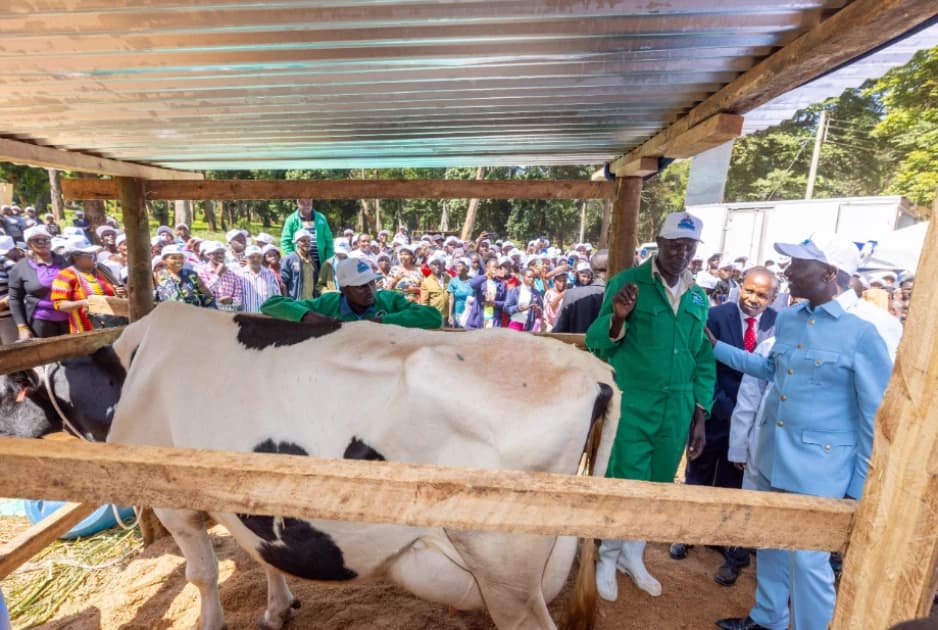We're loading the full news article for you. This includes the article content, images, author information, and related articles.
Mounting debt of KSh300 million owed by processor New KCC and soaring feed prices threaten the livelihoods of thousands of farmers, prompting calls for urgent government intervention to stabilise the critical sector.

Kenya's dairy farmers are facing a severe financial crisis, caught between crippling operational costs and significant payment delays from major processors. Farmers in the North and South Rift regions, considered the country's milk basket, report that the state-owned New Kenya Cooperative Creameries (New KCC) owes them over KSh300 million (US$2.32 million) for milk deliveries spanning the last four months. This delay has severely hampered their ability to purchase essential inputs like animal feeds, sustain their operations, and meet their financial obligations.
The situation has forced many farmers to take desperate measures. Some have had to lay off workers and reduce their herds, leading to a drop in milk production. Others are selling their milk to private buyers at potentially lower prices to generate immediate cash flow or are diversifying into other agricultural ventures like poultry and vegetable farming to mitigate their financial losses. The crisis highlights systemic challenges within the dairy value chain, including cooperative management and the need for more robust financial systems to protect farmers.
Compounding the problem of delayed payments is the dramatic surge in the price of animal feed, a primary driver of production costs. Since January 2025, the price of maize, a key ingredient in feed, has increased by as much as 45%. A 90-kilogram bag of maize now costs approximately KSh4,800, with projections it could rise further. This price inflation is a direct blow to dairy farmers, who are already operating on thin margins.
Industry experts, including the Association of Kenya Feed Manufacturers (AKEFEMA), have pointed to a domestic maize shortage, despite government assurances of self-sufficiency. The Competition Authority of Kenya (CAK) has also highlighted that Kenyan farmers pay up to 40% more for animal feed than their counterparts in other countries, citing an uncompetitive market dominated by a few major suppliers. This has led to widespread calls for government intervention, including the removal of import duties on maize to stabilize prices and ensure affordable access to raw materials for feed manufacturers.
The farmers' plight presents a stark contrast to recent data from the Kenya Dairy Board (KDB), which indicated a record-breaking first quarter in 2025. Formal processors received 250.6 million litres of milk, a 56% increase year-on-year, with January recording the highest monthly intake in the nation's history. This growth was attributed to favourable weather conditions and government interventions aimed at streamlining supply chains and improving animal genetics. The dairy sector contributes significantly to Kenya's economy, accounting for about 3.8% of the national GDP and providing jobs for 1.8 million people.
In response to the challenges, the government has initiated several measures. In early November 2025, it banned the importation of milk powder to protect local producers from foreign competition. Agriculture Cabinet Secretary Mutahi Kagwe also announced plans on Thursday, July 24, 2025, to lease public land to large-scale farmers for fodder and sunflower cultivation to bring down feed production costs. Furthermore, the government is distributing hundreds of milk coolers to cooperatives to reduce post-harvest losses, which were estimated at 175 million litres in 2023. However, for farmers like James Mwangi in Nakuru County, who is owed Sh200,000, these long-term strategies do not address the immediate cash-flow crisis threatening their livelihoods today.
Keep the conversation in one place—threads here stay linked to the story and in the forums.
Sign in to start a discussion
Start a conversation about this story and keep it linked here.
Other hot threads
E-sports and Gaming Community in Kenya
Active 9 months ago
The Role of Technology in Modern Agriculture (AgriTech)
Active 9 months ago
Popular Recreational Activities Across Counties
Active 9 months ago
Investing in Youth Sports Development Programs
Active 9 months ago
Key figures and persons of interest featured in this article